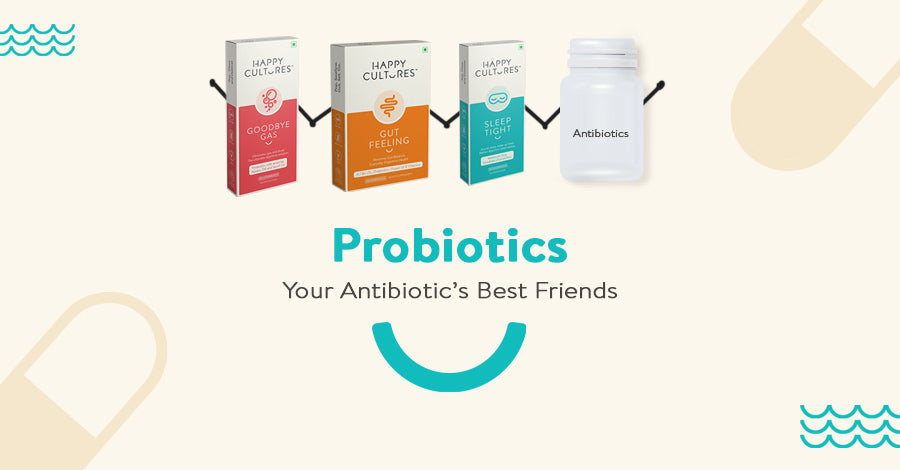Gut Health for Women: How Hormones Affect Your Microbiome
When we talk about gut health, we often focus on diet, digestion, or probiotics. But one important factor that deserves more attention—especially for women—is hormones. The female microbiome is uniquely influenced by hormone changes that happen across life stages, from puberty to menopause. In this blog, we'll explore the strong connection between hormones and the gut microbiome, and how this relationship affects women’s health.
New to gut health? Read our earlier blog on What Is the Gut Microbiome? to understand the basics.
Understanding the Gut Microbiome (A Quick Recap)
The gut microbiome is made up of trillions of microorganisms—mainly bacteria, but also fungi and viruses—that live in the digestive tract. These microbes play a key role in:
-
Breaking down food
-
Producing vitamins
-
Supporting your immune system
-
Regulating metabolism
-
Influencing mental health through the gut-brain axis
Your microbiome health is not static, it’s influenced by diet, stress, sleep, medications, and importantly for women, by hormonal fluctuations.
The Role of Hormones in a Woman’s Body
Hormones are chemical messengers that travel through the bloodstream and help control almost every process in the body, from mood to metabolism to reproduction. In women, hormonal balance is especially crucial for gut health.
Here’s a closer look at the main hormones and how they influence the female body and gut microbiota:
1. Estrogen
Estrogen regulates the menstrual cycle, supports bone health, and helps maintain brain function and mood. A group of gut bacteria known as the estrobolome helps process and recycle estrogen. If the gut microbiome is out of balance—what we call gut dysbiosis—it can disrupt estrogen levels, leading to symptoms like:
-
PMS (Premenstrual syndrome)
-
Weight gain
-
Mood swings
-
Irregular periods
A study in Endocrinology (2016) highlights the microbiome’s ability to metabolize estrogen and its influence on conditions like endometriosis and breast cancer.
https://www.researchgate.net/publication/335434619_Endometriosis_and_the_microbiome_a_systematic_review
2. Progesterone
Progesterone rises after ovulation and plays a key role in pregnancy. It slows digestion, which often causes bloating, gas, or constipation during certain parts of the menstrual cycle. It also influences which microbes thrive in the gut at different times of the month.
3. Testosterone
Though found in smaller amounts in women, testosterone supports muscle mass, mood, and libido. When testosterone is too high, like in PCOS (Polycystic Ovary Syndrome), it may lead to acne, weight gain, and inflammation, and also impact gut bacteria diversity.
4. Cortisol
Known as the stress hormone, cortisol is produced by the adrenal glands. Chronic stress leads to high cortisol levels, which can:
-
Damage the gut lining (causing leaky gut)
-
Lower microbial diversity
-
Increase the risk of IBS (irritable bowel syndrome)
5. Thyroid Hormones (T3 and T4)
Produced by the thyroid gland, these hormones control metabolism, temperature, and digestion. Low thyroid hormone levels (hypothyroidism) often result in constipation, bloating, and slow digestion. The gut microbiome influences how well these hormones are activated in the body.
6. Insulin
Insulin manages blood sugar levels and is essential for energy metabolism. Poor gut health can lead to insulin resistance, a common issue in women with PCOS. High sugar levels can also fuel harmful gut bacteria, worsening gut dysbiosis.
Microbiome Changes Across a Woman’s Life
Puberty
During puberty, rising hormone levels begin to change the gut microbiome composition. Estrogen and progesterone begin shaping a more mature bacterial profile, influencing mood, skin health, and body metabolism.
Menstruation
Many women report bloating, constipation, or diarrhea around their periods. Hormonal shifts during the cycle influence gut motility and bacterial balance, contributing to digestive symptoms and even mood swings via the gut-brain-hormone axis.
Pregnancy
Pregnancy triggers major changes in both hormone levels and microbial diversity. Research shows that pregnant women tend to have more inflammatory bacteria, which helps the immune system prepare for labor . These changes also help support fetal development and nutrient absorption.
https://pubmed.ncbi.nlm.nih.gov/22863002/
Menopause
After menopause, estrogen levels drop sharply, reducing microbial diversity and gut resilience. This contributes to symptoms like:
-
Weight gain
-
Dry skin
-
Bone loss
-
Increased risk of vaginal infections
Supporting gut health during menopause through diet, probiotics, and lifestyle can ease symptoms and improve overall well-being.
The Gut-Hormone Feedback Loop
The relationship between hormones and the gut microbiome goes both ways:
-
Hormones influence gut bacteria: For example, rising estrogen boosts certain beneficial microbes.
-
Gut bacteria regulate hormone levels: The estrobolome breaks down and reactivates estrogen, helping keep hormone levels in check.
This feedback loop explains why changes in gut health often lead to hormonal symptoms like PMS, acne, fatigue, or weight gain.
Gut Issues Common Among Women
1. PCOS and Gut Dysbiosis
Women with PCOS often have fewer beneficial gut bacteria like Lactobacillus and more inflammatory microbes. This worsens insulin resistance and hormone imbalances .
https://pubmed.ncbi.nlm.nih.gov/28045919/
2. IBS (irritable bowel syndrome)
IBS is more common in women and often flares up during menstruation. Estrogen and progesterone levels affect gut sensitivity and motility. Stress, another trigger, worsens symptoms by altering the gut-brain axis.
3. Mood Disorders and the Gut
Women are more prone to anxiety and depression, especially during hormonal shifts. Since the gut produces up to 70% of serotonin, poor gut health can lower mood and emotional resilience.
What’s Next: Personalized Gut Health for Women
With modern microbiome testing, women can now receive personalized gut health plans. By analyzing the composition of your gut bacteria, experts can recommend tailored probiotics, diet changes, and hormonal support strategies.
Curious to know more about gut testing? Check out our detailed blog on Microbiome Testing: What You Need to Know.
Your gut microbiome and hormones are in constant conversation. For women, this relationship affects everything from your period and mood to your weight and energy levels. By supporting your gut health, you’re also helping your hormones stay in balance, which means better overall women’s health.
With a few lifestyle tweaks and awareness, you can take control of both your gut and hormonal health, naturally and effectively.





